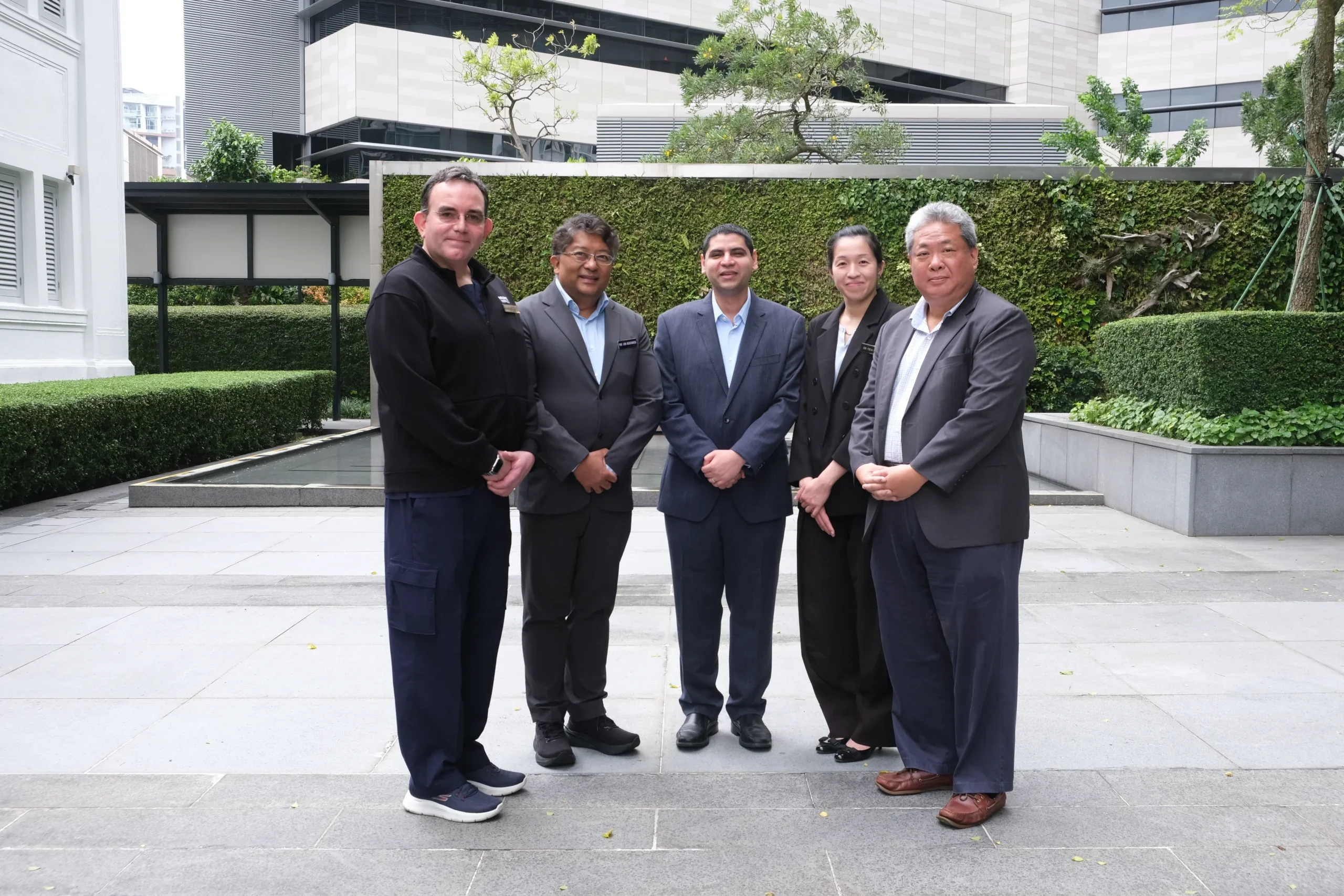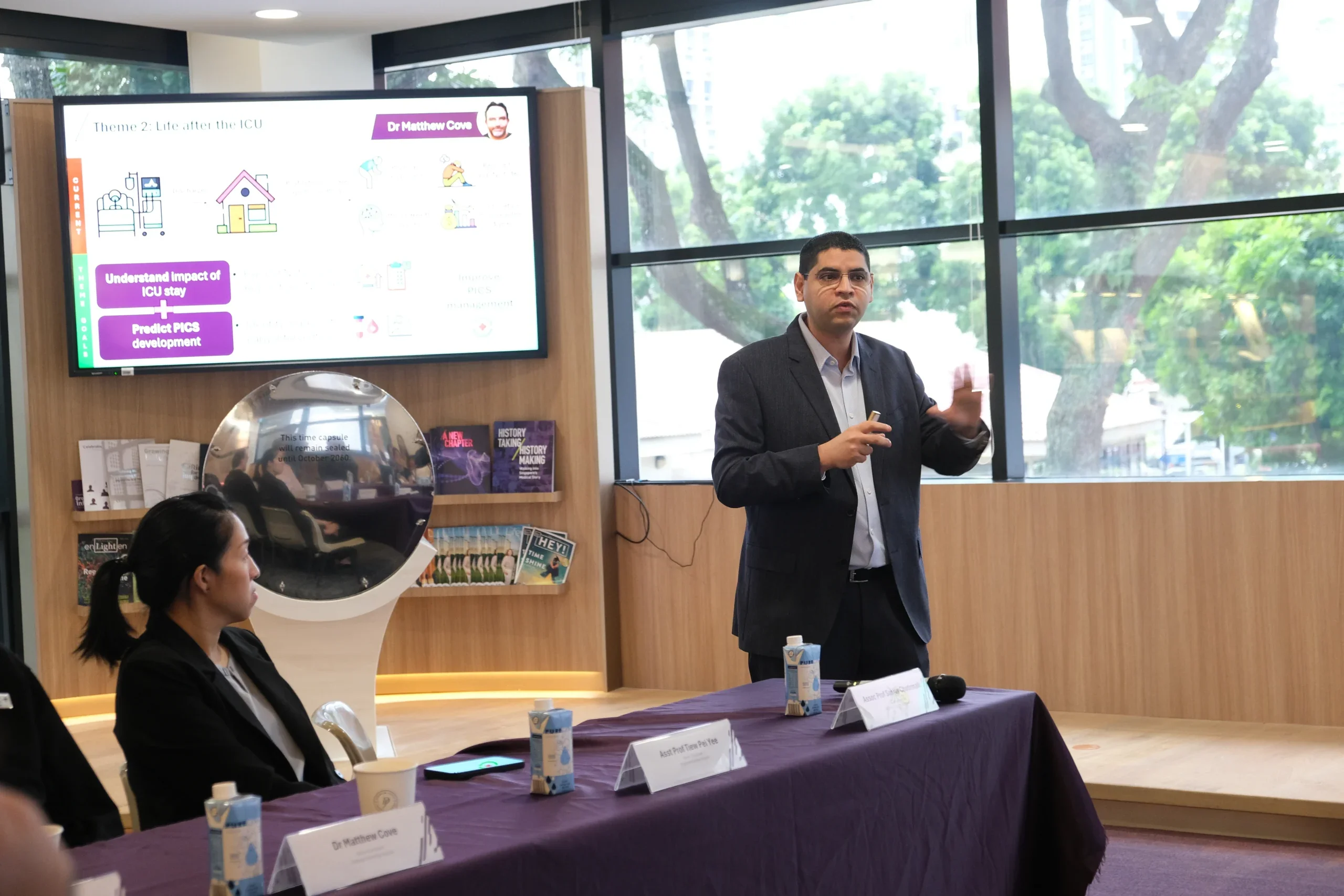Deep Breathing, Deeper Insights: NUS Medicine partners with eight institutions to pioneer lung health research in Asia
Published: 23 Jan 2025

From left to right: Dr Matthew Cove, Senior Consultant, Yong Loo Lin School of Medicine, National University of Singapore (NUS Medicine), Professor John Abisheganaden, Senior Consultant, Tan Tock Seng Hospital; Director, NHG Health Services & Outcomes Research, Associate Professor Sanjay Chotirmall, Vice-Dean Research, Lee Kong Chian School of Medicine, Nanyang Technological University, Assistant Professor Tiew Pei Yee, Senior Consultant, Department of Respiratory & Critical Care Medicine, Singapore General Hospital, and Associate Professor Chew Fook Tim, Vice-Dean, Faculty of Science, NUS. Photo: NTU Singapore
As a key partner in the Academic Respiratory Initiative for Pulmonary Health (TARIPH) Centre’s multi-institutional research programme, NUS Medicine is at the forefront of crucial lung health studies, supported by Singapore’s first national research grant for respiratory health.
This massive collaboration, involving nine organisations, focuses on the unique needs of the Asian population, encompassing health, environmental, social and cultural factors.
The goal? To build effective national and regional strategies for improving Singapore’s lung health, and to develop personalised treatments for chronic lung diseases like asthma and Chronic Obstructive Pulmonary Disease (COPD), amid an era of climate change and a rapidly ageing population.

From left to right: Dr Cove, Asst Prof Tiew and Assoc Prof Chotirmall. Photo: NTU Singapore
One of the groundbreaking projects in this programme involves growing human-like lungs in the lab. Professor Wang De Yun and Associate Professor Thai Tran from NUS Medicine, together with Associate Professor Sanjay Chotirmall (Lee Kong Chian School of Medicine, NTU), are spearheading the creation of a national repository of cellular models that closely replicate human lung function.
Using advanced techniques and Precision Cut Lung Slices (PCLS) to cultivate these lungs-in-a-dish, these lab-grown organoids let researchers study lung diseases, screen drugs, and test new treatments on models that mimic real lungs.
This allows us to better understand respiratory conditions and formulate more effective, tailored therapies.
Read the full insights in the joint news release here.


